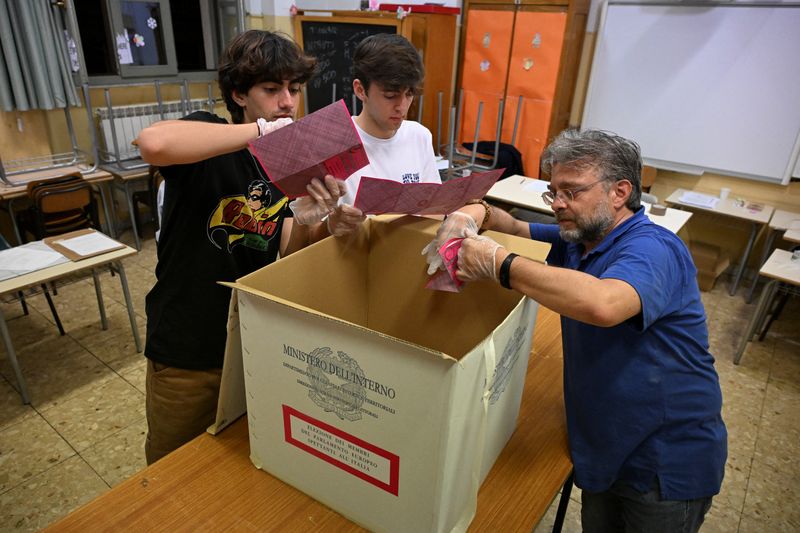By Kate Abnett
BRUSSELS (Reuters) – The economy, migration and worldwide conflicts had been the end concerns for voters in the European Union election, data from the bloc’s biggest member nations suggested on Monday.
Provisional ends in the European Parliament election on Sunday night time confirmed gains for nationalist and euro-sceptic parties that campaigned on tickets including clamp-downs on migration, voters’ economic woes and scrapping inexperienced insurance policies.
“Bettering the economy and reducing inflation” ranked highest amongst voters requested what became an vital thing influencing their vote, in a spy by polling platform Focaldata, shared with Reuters.
“International war and war” became the second valuable self-discipline, adopted by “immigration and asylum seekers”, in the ballotof 6,000 voters in the EU’s five biggest nations by inhabitants – Germany, France, Italy, Spain and Poland – plus Sweden.
The spy became completed on June sixth, the day balloting started in the EU Parliament election.
Respondents positioned “performing on local climate trade” fifth on the checklist of points influencing their vote, in the support of “reducing inequality”, which ranked fourth.
Climate trade became ranked highest by respondents who acknowledged they planned to vote for Green parties. Europe’s Green parties had been amongst the biggest losers in the EU election, with initial outcomes suggesting they’d lose 18 seats to total up with Fifty three EU lawmakers.
But even amongst respondents planning to vote for the parties in the EU Parliament’s some distance-true Identity and Democracy crew, which has antagonistic EU inexperienced measures, 58% acknowledged local climate trade became “very vital” or “a exiguous vital” to them in deciding how to vote.

In France, Italy and Poland, voters acknowledged economic concerns had been the dear thing influencing their vote, with immigration in second effect in France, and war, the quantity two self-discipline in Italy and Spain.
German respondents ranked “immigration and asylum seekers” as their top self-discipline, adopted by wars, after which economic concerns.

Leave a Reply